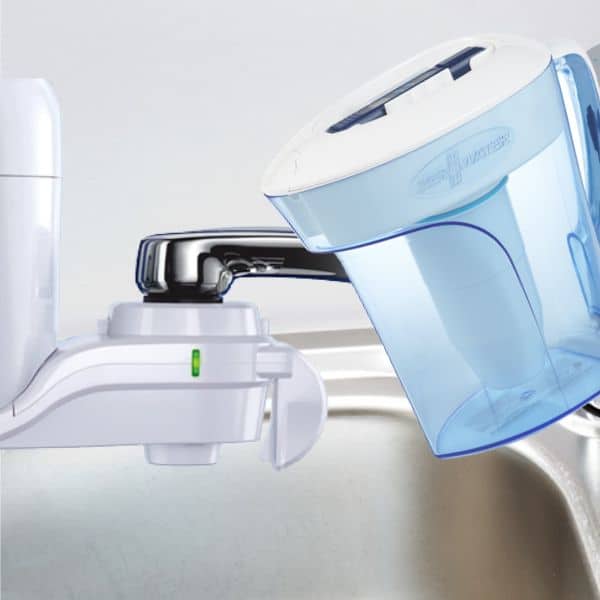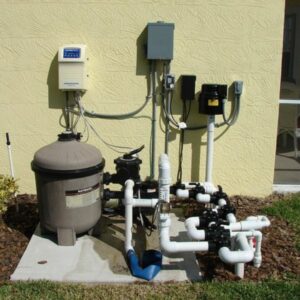What Are Water Filter Pitchers and How Do They Work?
A water filter pitcher is a popular way to purify tap water without requiring expensive filtration systems or professional services. These pitchers have a built-in filter that removes impurities from the water, such as chlorine, heavy metals, and sediments. The result is clean and safe drinking water that tastes better than regular tap water.
The way these pitchers work is quite simple. Once you fill up the pitcher with tap water, it passes through the filter cartridge, which contains activated carbon or ion exchange resins. The activated carbon adsorbs impurities like chlorine and other organic compounds, while ion exchange resins remove heavy metals like lead or copper from the water. As a result, you get clear and refreshing drinking water without any unpleasant taste or odor.
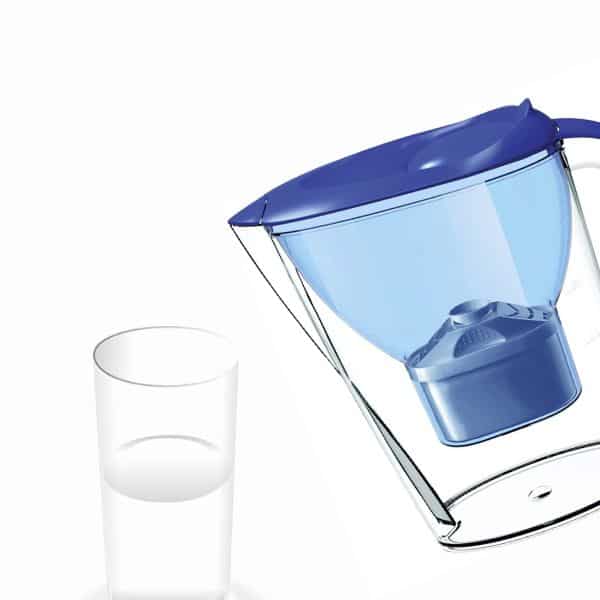
Advantages of Water Filter Pitchers
These handy devices offer a range of benefits, making them an excellent choice for households looking to improve their water quality.
Improved water aesthetics
One of the main advantages of using water filter pitchers is that they can significantly improve the aesthetics of your drinking water. This is because they remove impurities, such as chlorine, that can cause an unpleasant taste and odor.
Removes harmful water impurities
Another biggest benefit of using a water filter pitcher is removing harmful impurities from tap water, making it safer and healthier to consume. Most conventional tap water contains various contaminants like bacteria, chlorine, lead, fluoride, and pesticides. Water filter pitchers remove these impurities through various filtration mechanisms such as activated carbon filters or ion exchange resins. This ensures you’re drinking pure and safe water essential for good health.
More economical than most filtration systems
Water filter pitchers have become an increasingly popular solution for households seeking high-quality water without the expense of a full-fledged filtration system. These pitchers offer several advantages over other filtration systems, particularly regarding affordability. For budget-conscious consumers, opting for a water filter pitcher can be an excellent way to achieve clean and healthy drinking water while controlling costs.
Easy to use and maintain
The advantages of using these filters go beyond just providing clean drinking water. Firstly, water filter pitchers are very easy to use. They come with simple instructions that anyone can easily follow. All you need to do is fill the pitcher with tap water and let it pass through the filter. The filter removes impurities such as chlorine, sediment, and other contaminants from the water, leaving it fresh and clean for consumption.
Secondly, maintaining these filters is also very easy. Most brands recommend changing the filter every 40 gallons or approximately every two months, depending on your usage frequency – making them more economical than bottled water solutions.
Compact and lightweight
Another primary advantage of these devices is their compact and lightweight design. Unlike bulkier water filtration systems that require significant installation or countertop space, water filter pitchers can fit easily into most refrigerator doors or on a kitchen shelf.
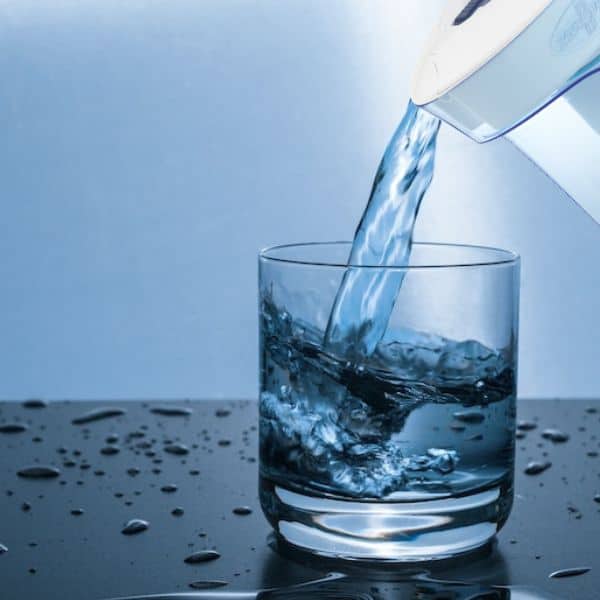
Disadvantages of Water Filter Pitchers
Frequent filter replacements
One of the main disadvantages of these devices is that they require frequent filter replacements. This can add up in terms of cost and inconvenience over time.
Slow filtration
Most water filter pitchers use activated carbon to remove contaminants from tap water. While this method is effective, it also means that the filtration process takes time. Depending on the quality of your tap water and the type of pitcher you have, filtration can take anywhere from several minutes to over an hour. This can be inconvenient if you need filtered water quickly or if you have a large family that needs access to clean drinking water throughout the day.
Limited holding capacity
Another disadvantage of water filter pitchers is their limited holding capacity. Most water filter pitchers have a maximum holding capacity of around 10-12 cups, which may need to be increased for larger households or those who consume more water. You may need to refill the pitcher frequently throughout the day, which can be inconvenient and time-consuming.
Many water filters can only remove a handful of water contaminants
Many water filter pitchers can only remove a handful of water contaminants. While they may effectively reduce chlorine and other chemicals that affect taste and odor, they often fall short in removing more harmful substances like lead, bacteria, and viruses. This means that while your water may seem cleaner, it could still contain harmful impurities that could negatively impact your health.
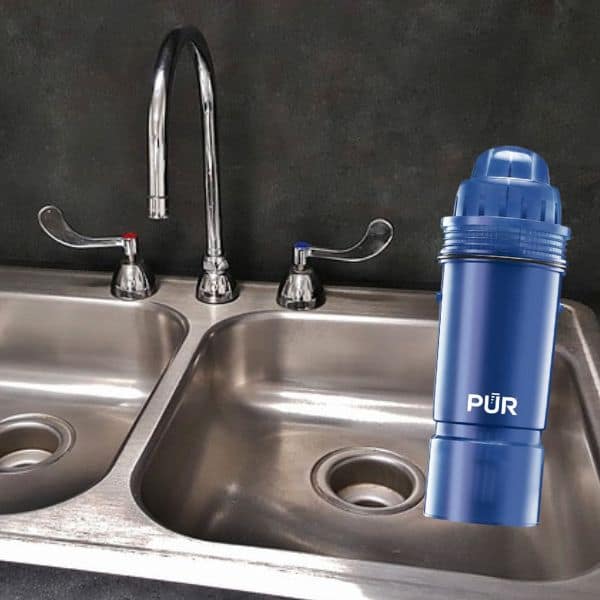
What Are Faucet Water Filters, and How Do They Work?
Faucet water filters attach to your sink and purify the water from the faucet. They are an affordable and convenient way to ensure access to clean, healthy drinking water without purchasing bottled water. These filters remove impurities such as chlorine, sediment, and other contaminants from the tap water.
The filtration process within a faucet mount filter typically involves several stages. The first stage is usually activated carbon, which removes larger particles such as sediment and chlorine. Next, a finer mesh filter traps smaller particles like lead or microscopic bacteria. Some advanced models may use reverse osmosis technology or ultraviolet light exposure for additional purification. If you want to select the best option for you, You can go through this list of some of the best faucet-mounted filters.
Advantages of Faucet Water Filters
Easy Installation
One of the main advantages of faucet water filters is that they require easy installation, which means you don’t need any special tools or skills to set them up. Unlike other water filtration systems, faucet filters can be installed in minutes by simply screwing them onto your existing faucet.
More practical for large household
Another main advantage of using these filters is that they are more practical for large households than other filters. With faucet water filters, you can get clean and filtered water pressure directly from your tap without worrying about refilling pitchers or buying bottled water.
Water on Demand
With a faucet filter installed, you no longer need to wait for filtered water in a pitcher or refrigerator dispenser. The filtering process happens as the water flows through the filter, so you can get fresh, filtered drinking water directly from your faucet whenever you need it. This also saves time and money since there’s no need to refill pitchers or purchase bottled water constantly.
Removes more contaminants than water filter pitchers
The main advantage of faucet mount filters over other water filtration systems is their ability to remove more impurities from the water supply. While water filter pitchers are also an effective way to filter drinking water, they typically offer less comprehensive filtration than faucet filters.
Additionally, faucet filters can help eliminate unpleasant tastes and odors from drinking water caused by rust or sediment buildup in pipes.

Disadvantages of Faucet Water Filters
Not compatible with all faucets
Faucet water filters have become popular for many households that want to enjoy clean and healthy drinking water. However, one of the main disadvantages of these filters is that they are only compatible with some faucets. This can be a major issue for some homeowners who may have invested in expensive faucets or those living in rental properties where changing the faucet is not an option.
Decreased flow rate
Another disadvantage of using these filters is that they can cause a significant decrease in your faucet’s flow rate. This issue is caused by the filter media, which impedes water flow through the device.
Frequent filter replacements
If you need a faucet filter, you should be aware of the fact that they require frequent filter replacements. The reason behind this need for frequent filter changes is that these filtration systems are designed to trap and remove particles from your tap water. As time goes on, the trapped particles can accumulate in the filter, decreasing its effectiveness over time. This means that you will have to change your filter frequently if you want it to continue working properly.
Factors to Consider When Choosing Between a Faucet Filter and a Pitcher Filter
When it comes to choosing between a faucet filter and a pitcher filter, there are several factors that you should consider.
Water Quality
When choosing between a pitcher and faucet filters, water quality should be your top consideration. If you’re unsure about the quality of your filtered and unfiltered water, it’s highly recommended to have it tested before buying either type of filter. This will give you an idea of what contaminants are in your water supply and which filtration option may best suit your needs.
Water Usage
If you have a large family or frequently entertain guests, a faucet filter may be the better option for you. These filters attach directly to your kitchen sink and provide filtered water on demand. This means you won’t need to constantly refill a pitcher throughout the day, as with a pitcher filter.
On the other hand, if you live alone or in a small household and use less water, a pitcher filter may be sufficient for your needs. Pitcher filters are portable and can easily be moved around your home or taken with you when traveling.
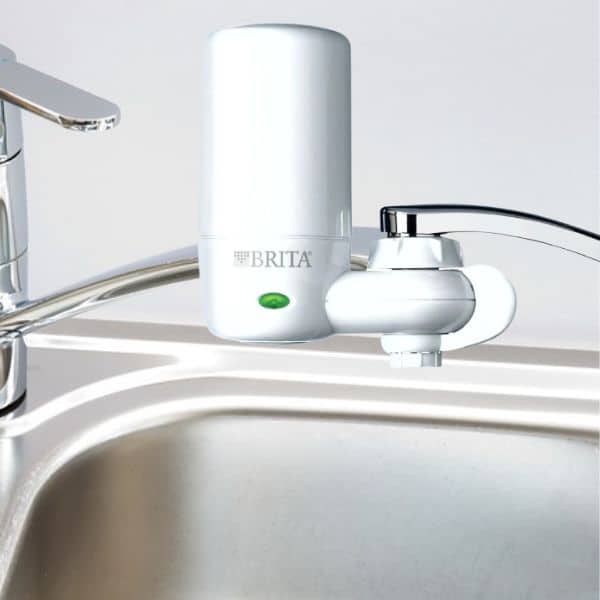
NSF/ANSI Testing and Certifications
Another important factor is to check for NSF ANSI testing and certifications. This is because these tests ensure that the water filter meets certain standards for performance and safety.
The National Sanitation Foundation (NSF) is an independent organization that develops health standards for food, water, and consumer goods. The American National Standards Institute (ANSI) accredits organizations like NSF to develop these standards. When a water filter has been tested by NSF against their rigorous standards and certified by ANSI, you can be confident that it will effectively remove contaminants from your drinking water.
Filtration Performance
Another important factor to take into account is filtration performance. After all, the primary purpose of both types of filters is to remove harmful contaminants from your drinking water.
What exactly should you be looking for regarding filtration performance? Consider what contaminants each filter can remove. While both faucet and pitcher filters can typically reduce chlorine taste and odor, not all models can remove other common contaminants like lead or fluoride. Be sure to read product descriptions carefully and choose a filter targeting the specific impurities in your tap water.
Durability
No matter how good a faucet or pitcher filter might be, it’s worthless if you can’t use it. With that in mind, make sure to choose a sturdy and well-built model.
Budget
When choosing between a faucet filter and a pitcher filter, budget is the main factor you should consider. While both filters serve the same purpose of purifying your drinking water, they differ in cost and convenience. Before deciding which one to choose, weighing each option’s pros and cons is important.
Conclusion
Both faucet water filters and pitcher water filters have their advantages and disadvantages. Faucet water filters are suitable for large family homes where water is consumed daily. On the other hand, pitcher filters are ideal for small families who only need to purify their drinking water. Before making a decision, consider all the factors above and compare the available models.
